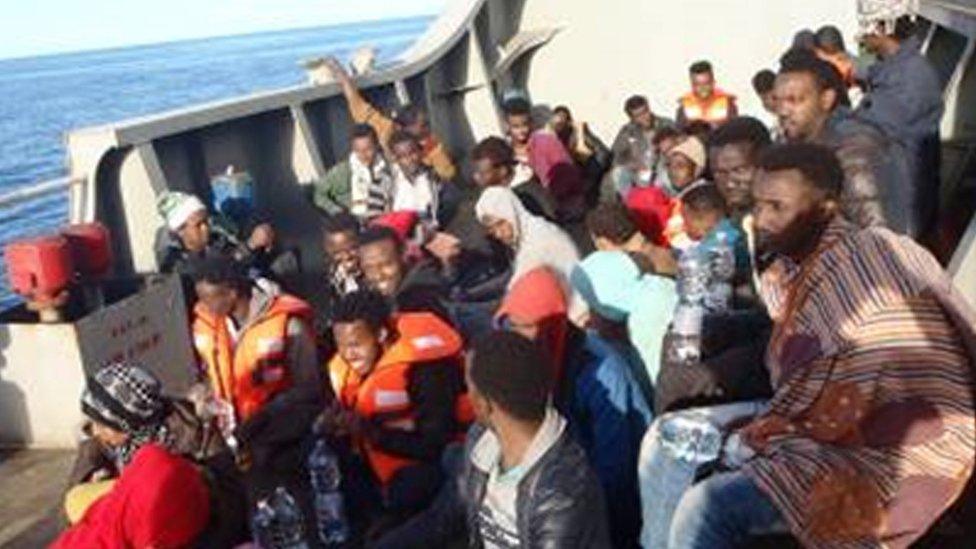Migrant crisis: Europol to investigate Egypt mass drowning
- Published
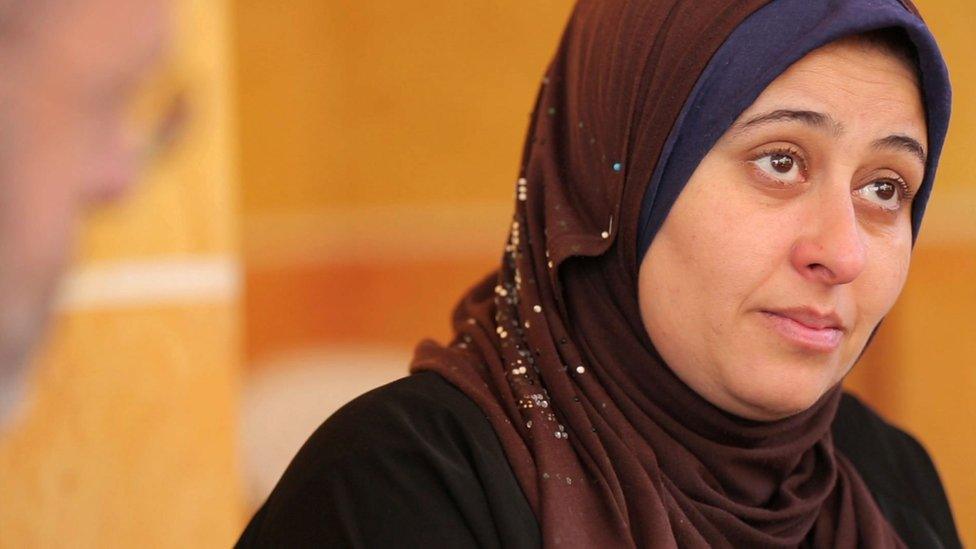
Iman Nasr Taha's son Hamed was on the boat that sank - he is still missing
The European policing agency Europol is planning to investigate what is believed to be the biggest loss of a migrant boat in 2016, following a Reuters-BBC Newsnight investigation.
More than 500 people are thought to have died in the sinking on 9 April, but there has been no official inquiry.
Newsnight has established that the boat set sail from Egypt - not Libya, as the UNHCR stated at the time.
The head of Europol, Rob Wainwright, said the case was "uncomfortable".
He welcomed the Reuters-BBC Newsnight investigation and promised "to look at it again" given "the absence of any clear answers".
The UN estimates that 4,663 people have died this year attempting to cross the Mediterranean, making it the most deadly year on record. But the shipwrecks are frequently not investigated.
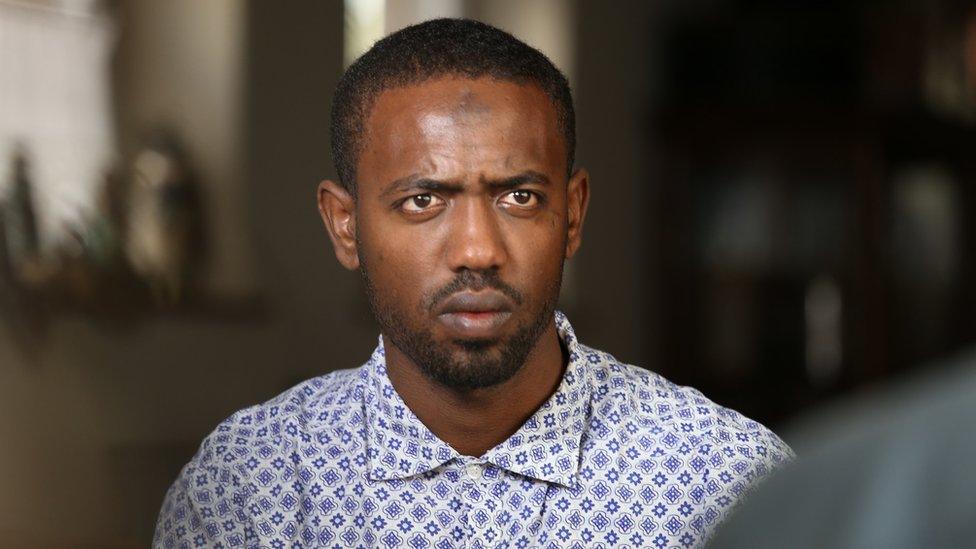
Muaz Ayimo from Ethiopia is one of 37 survivors of the shipwreck
Reuters, external and BBC Newsnight spent months piecing together the story of what happened to the ship that sank on 9 April 2016 - speaking to survivors, to relatives of the victims, and eventually tracking down the smugglers, the brokers, and the details of the ship that sank.
Thirty-seven people survived the shipwreck, but more than 500 are believed to have died. Those who perished came from Somalia, Ethiopia, Sudan, Syria, Egypt and a number of other countries.
Each had paid around $2,000 (£1,600) to smugglers in the hope of reaching Italy.
Newsnight understands that the main boat - a trawler - set sail from the port of Rashid, just to the east of Alexandria in Egypt. At about 02:00 local time on the night of Saturday 9 April a fishing boat with around 200 additional migrants attempted to join the trawler, which by that time had around 300 people on board.
It began to list towards the fishing boat. The migrants tried to correct that by shifting to the other side, but they over-compensated and the trawler capsized.
Some extracts from John Sweeney's report on the "forgotten shipwreck"
Newsnight's John Sweeney and Stephen Grey from Reuters will be taking your questions on their investigation on the BBC Newsnight Facebook page, external at 13:00 GMT on Wednesday 7 December
According to survivors of the disaster, the fishing boat sped off, leaving about 100 people who were still alive and swimming in the water, to drown. One survivor told BBC Newsnight that he was threatened with a knife by a smuggler when he tried to help fellow migrants.
The first that was known of the shipwreck was a full week later when the Italian coast guard received a distress call from one of the survivors.
The smugglers had instructed those on board to say they had come from Libya - in order to avoid being repatriated to Egypt. A few days later, based on interviews with survivors in Greece, the UNHCR issued a press statement stating that the ship had left from Libya.
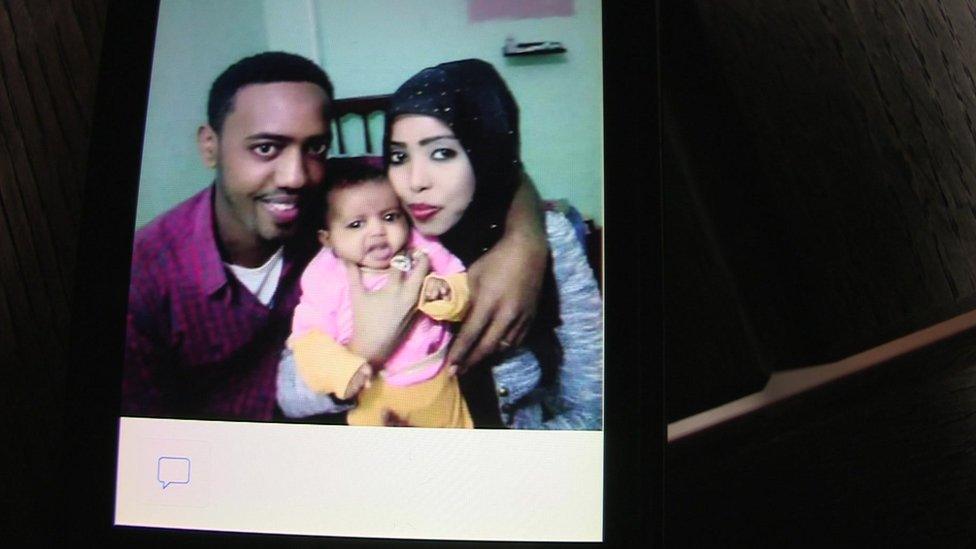
Muaz's wife and daughter both died in the sinking
When presented with BBC Newsnight's findings, the UN's refugee agency said: "The UNHCR is not a law enforcement agency and investigating sea disasters or transnational organized crime is beyond our means, mandate and expertise.
"But with many thousands of lives having been lost on the Mediterranean… the need to bring to account those involved in the organized trafficking and smuggling of people couldn't be clearer. The loss of life at sea has been truly appalling and we have been very vocal in denouncing it."
Our investigation understands that the Greek coastguard did not refer the case to a criminal prosecutor because there was no indication any crime had been committed on Greek territory. Both the coastguard service and Nikos Paraskevopoulos, the Greek justice minister, declined to comment.
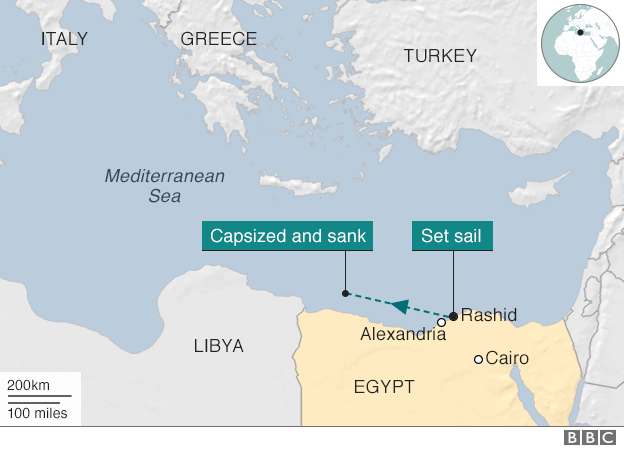
The Egyptian government has never publicly acknowledged the sinking, nor that the boat set sail from one of its harbours - leaving many of the victims' families in limbo.
In July, a court in Alexandria convicted seven people in absentia - but for the lesser charge of fraud, rather than manslaughter or murder. Those convicted are still at large.
In a statement, the Egyptian Ministry of Justice told BBC Newsnight a new law had been ratified in November to help tackle illegal migration.
The ministry could not say what inquiries had taken place into the 9 April sinking, but added: "If the occurrence of such a crime is proven, Egypt certainly will not hesitate to conduct necessary investigations to uncover it."

Find out more

John Sweeney and James Clayton were reporting for BBC Newsnight. Watch their full investigation at 22:30 on BBC Two.
Read more: The forgotten shipwreck
John Sweeney and Stephen Grey from Reuters, external will be taking your questions on their investigation on the BBC Newsnight Facebook page, external at 13:00 GMT on Wednesday 7 December
Our World: The Forgotten Shipwreck is on the BBC News Channel at 21:30 Sunday 11 December and on BBC World News. It will be available to watch later via BBC iplayer

- Published4 March 2016
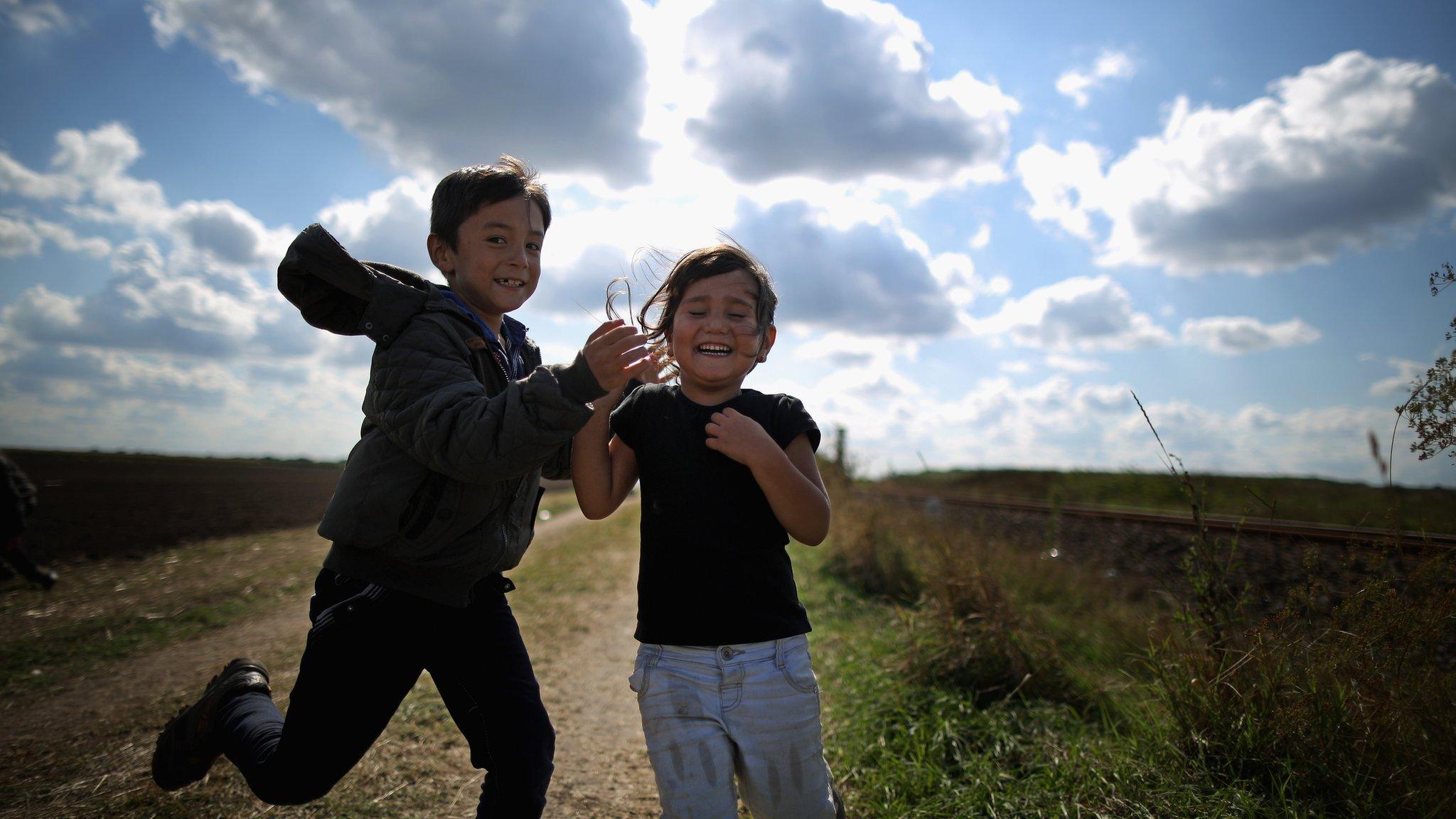
- Published18 April 2016
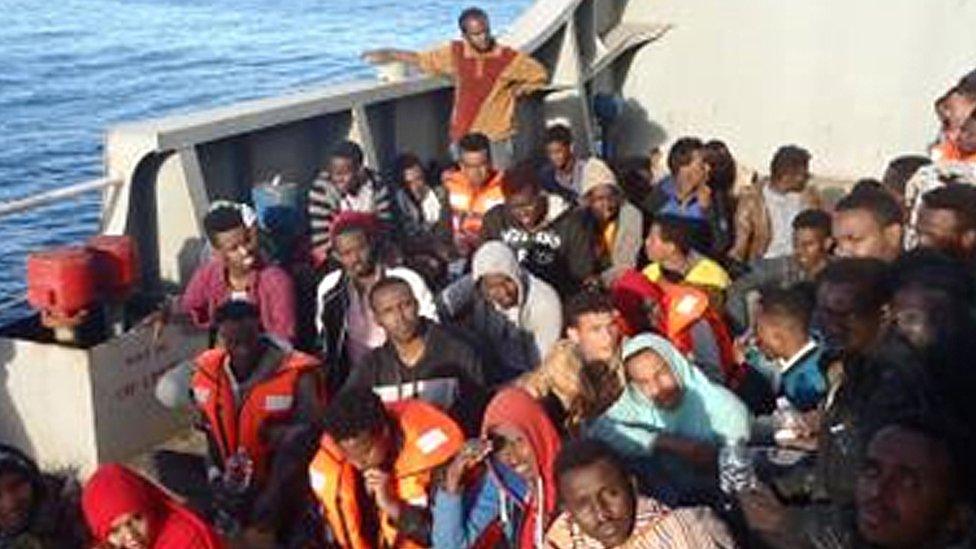
- Published18 April 2016
